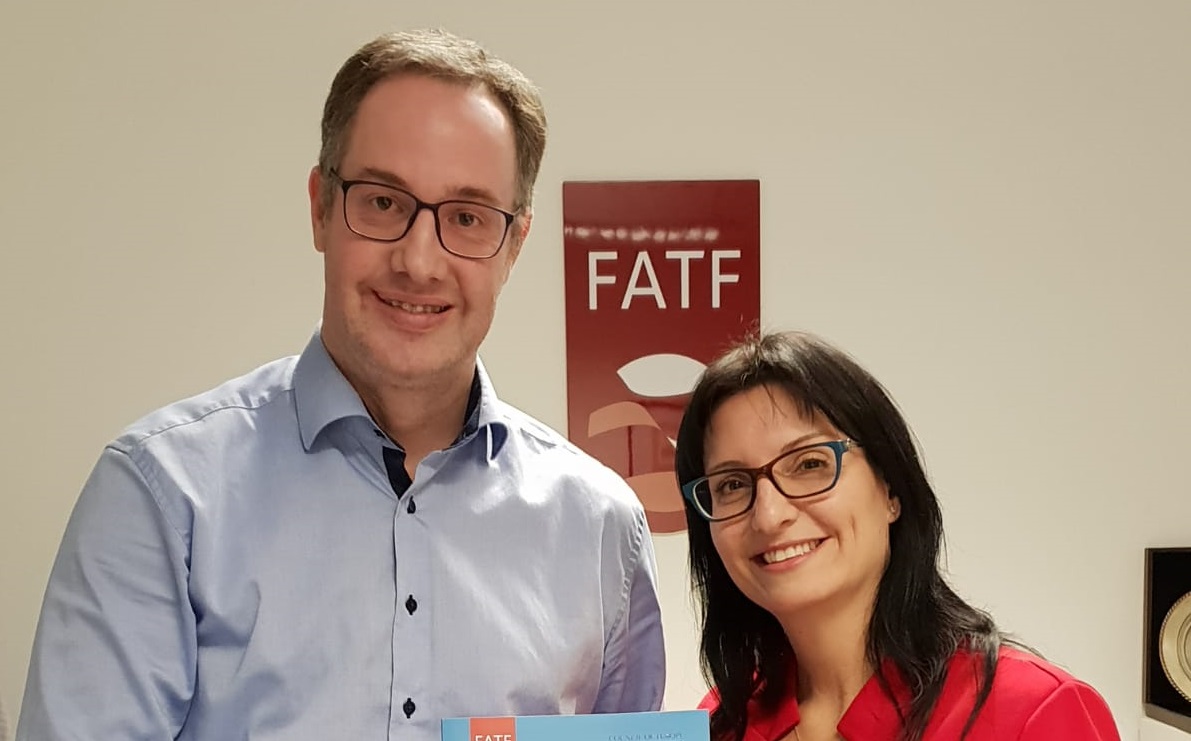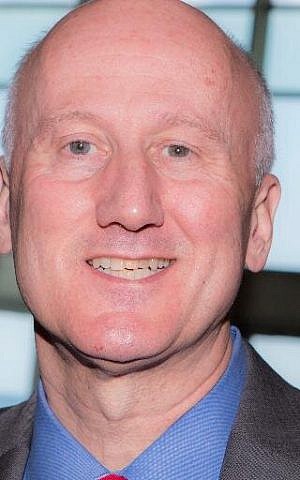FAFT acronym for Financial Action Task Force
http://factsnotfairies.blogspot.com/2008/06/israel-pm-ehud-olmerts-money.html
Israel PM Ehud Olmert, Menachem Atzmon, ICTS International, Morris Talansky Global Technologies, U.S.Stock Money Launderers, WTC, 9/11/01, SwissAir 111 Crash, 9/2/98
What is even stranger is the coincidence of another Israeli controlled U.S. or NASDAQ penny stock, ICTS International, that guarded Logan Airport, Boston on 9/11, was controlled and managed by Menachem Atzmon who was also convicted of money laundering for his and Netanyahu's and Ehud Olmert's Likud Party...............
https://www.timesofisrael.com/now-a-member-of-anti-money-laundering-body-has-israel-truly-cleaned-up-its-act/
Israel’s rapid transformation from blacklisted trouble spot to FATF member, and the justice minister’s glowing characterization of the country’s fight against money-laundering, however, is hard to square with numerous economic realities that suggest abiding problems in this field.
If Israel is doing such a good job combating money laundering, how does one account for the astonishingly high number of ghost apartments(apartments that remain empty for most of the year) in the country, and the surge in sales of ultra-high-end luxury cars — both seen as a tell-tale sign of money launderers in action? What about the relatively mild punishments (Hebrew link) for those convicted in fraud cases involving billions of dollars? Not to mention complaints from law enforcement in places like France and the United States that Israel is not cooperating sufficiently on international financial crimes?
Furthermore, how can the officially asserted claim of having effectively faced down money laundering be reconciled with estimates that 20-25 percent of Israel’s economy is off the books? Or the law that allows new immigrants and returning residents to earn income “abroad” (even from shell companies) for ten years without paying taxes on it or, still more problematically, even reporting it — a law that remains on the books despite Israeli tax officials’ relentless efforts to have it amended? What about the fact that for over a decade Israeli law enforcement failed to crack down on, and appears to continue to turn a blind eye to, Israel’s semi-underground investment scam industry, which defrauded victims all over the world out of billions, and also serves as a conduit for criminals to move their money around the world under the guise of online trading?...............
Jan 11, 2010 - Memory: ICTS International guarded Logan Airport, Boston on 9/11, was ... of money laundering for his and Netanyahu's and Ehud Olmert's Likud Party. ... Israeli plutocrat MenachemAtzmon was co-treasurer of the Likud, ..
British Israei money launderer Michael Zwebner was aided by ex Jerusalem Mayor aqnd ex Iranian
Israeli President of Israeli Moshe Katsav to promote his worthless shares of UCSY or Air Wter Corp incorporated in Nevada and run out of Miami Floriada in the early and mid 2000's.
Menachem Atzmon convicted of money laundering there for traansfering money from Israeli government to Netenyahu and Olmert's and his own Likud Party in the 1990's still was allowed to not only enter the U.S. but incorporate the money laundering stock fraud ICTS International and then use it to buy Huntleigh airport rent-a-cops and the contract to guard Logan airpot Boston just in time to allegedly according to the official story accidentally allow Mohamed Atta and his Saudi terrorists to board flights 11 and 175 or both AND COLLIDE INTO THE WTC ON THAT INFAMOUS MORNING ON SEPTEMBER 11,2001 !
Ehud Olmert's Criminal Ties to U.S. Air Water Corp Stock Fraud and. British Israeli con ..... that both Israel President Moshe Katsav as well as ex Jerusalem Mayor ... speech as well as have takenMichael Zwebner Ehud Olmert ,Moshe Katsov
ICTS executive Menachem Atzmon was even convicted in his own country of ..... into ,the New YorkWTC or World Trade Center on the morning of 9/11/01 !!
Jul 18, 2007 - WTC,9/11,Boston Logan Trial:Israeli ICTS 'Security';Frank,Kennedy, ..... Menachem Atzmon of ICTS International has had direct familiar and ..
https://www.timesofisrael.com/now-a-member-of-anti-money-laundering-body-has-israel-truly-cleaned-up-its-act/
Israel’s rapid transformation from blacklisted trouble spot to FATF member, and the justice minister’s glowing characterization of the country’s fight against money-laundering, however, is hard to square with numerous economic realities that suggest abiding problems in this field.
If Israel is doing such a good job combating money laundering, how does one account for the astonishingly high number of ghost apartments(apartments that remain empty for most of the year) in the country, and the surge in sales of ultra-high-end luxury cars — both seen as a tell-tale sign of money launderers in action? What about the relatively mild punishments (Hebrew link) for those convicted in fraud cases involving billions of dollars? Not to mention complaints from law enforcement in places like France and the United States that Israel is not cooperating sufficiently on international financial crimes?
Furthermore, how can the officially asserted claim of having effectively faced down money laundering be reconciled with estimates that 20-25 percent of Israel’s economy is off the books? Or the law that allows new immigrants and returning residents to earn income “abroad” (even from shell companies) for ten years without paying taxes on it or, still more problematically, even reporting it — a law that remains on the books despite Israeli tax officials’ relentless efforts to have it amended? What about the fact that for over a decade Israeli law enforcement failed to crack down on, and appears to continue to turn a blind eye to, Israel’s semi-underground investment scam industry, which defrauded victims all over the world out of billions, and also serves as a conduit for criminals to move their money around the world under the guise of online trading?...............
.”

Executive secretary of the Financial Action Task Force David Lewis (left) poses with Dr. Shlomit Wagman, head of the Israel Money Laundering and Terror Financing Prohibition Authority on the occasion of Israel’s acceptance as a member of the FATF, Tel Aviv, December 10, 2018. (Justice Ministry)
Shaked also predicted that joining the organization would be good news for the Israeli economy.
“This will help our financial sector become an international player. It will help our economy and business sector and situate Israel as a safe place to invest.”
Israel’s rapid transformation from blacklisted trouble spot to FATF member, and the justice minister’s glowing characterization of the country’s fight against money-laundering, however, is hard to square with numerous economic realities that suggest abiding problems in this field.
If Israel is doing such a good job combating money laundering, how does one account for the astonishingly high number of ghost apartments(apartments that remain empty for most of the year) in the country, and the surge in sales of ultra-high-end luxury cars — both seen as a tell-tale sign of money launderers in action? What about the relatively mild punishments (Hebrew link) for those convicted in fraud cases involving billions of dollars? Not to mention complaints from law enforcement in places like France and the United States that Israel is not cooperating sufficiently on international financial crimes?
Furthermore, how can the officially asserted claim of having effectively faced down money laundering be reconciled with estimates that 20-25 percent of Israel’s economy is off the books? Or the law that allows new immigrants and returning residents to earn income “abroad” (even from shell companies) for ten years without paying taxes on it or, still more problematically, even reporting it — a law that remains on the books despite Israeli tax officials’ relentless efforts to have it amended? What about the fact that for over a decade Israeli law enforcement failed to crack down on, and appears to continue to turn a blind eye to, Israel’s semi-underground investment scam industry, which defrauded victims all over the world out of billions, and also serves as a conduit for criminals to move their money around the world under the guise of online trading?
Could it be that the authors of the FATF report were not aware of these phenomena? Some experts suggest that they were aware, but that in other countries the situation is even worse — so that Israel is indeed, relatively speaking, among the global leaders in the fight against money laundering and terror financing.
‘A very positive report’
Money laundering serves an essential function in any crime motivated by financial gain. It is the process that allows beneficiaries of crime to disguise the source of their funds, reintroduce those funds into the legitimate economy and, if successful, spend their ill-gotten gains with impunity.
“Money laundering is the thing that permits drug traffickers to stay in business and sell Fetanyl, that allows criminals to pay off people in government, to engage in human trafficking or worse,” Kieran Beer, the editor-in-chief of MoneyLaundering.com, the news site of the Association of Certified Anti-Money Laundering Specialists (ACAMs), told The Times of Israel by phone from New York.
“We don’t want crime to pay, and the way crime pays is through laundered funds,” he said.
The FATF was founded in 1989 by the G-7 summit in Paris and grew out of the United States’s efforts to crack down on the global drug trade and the realization that international cooperation was needed to track and forfeit the proceeds of transnational crime in a global economy.
Global awareness of the need to combat money laundering increased after the September 11, 2001, terrorist attacks in the United States and after several high-profile leaksabout the way high net worth individuals store their money offshore.
Countries wishing to join the FATF are subject to an on-site evaluation in which their anti-money laundering regime is evaluated on the basis of 40 critera, including how seriously the judicial system takes the crime of money laundering, whether the country confiscates proceeds of crime, whether banks and financial institutions know the names of the beneficiary owners of bank accounts, and whether financial and other institutions are properly regulated and supervised. The idea behind these recommendations is to plug every possible hole that criminals could use to introduce dirty money into the financial system. Since criminals can be creative, the FATF recommendations are continually being updated.

No comments:
Post a Comment